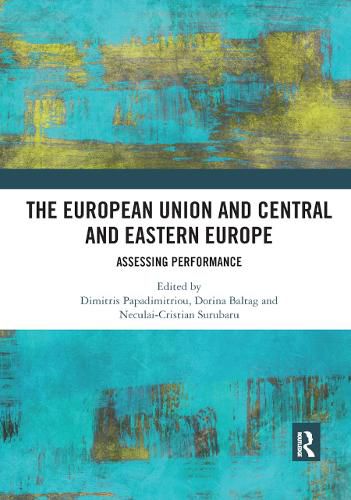Readings Newsletter
Become a Readings Member to make your shopping experience even easier.
Sign in or sign up for free!
You’re not far away from qualifying for FREE standard shipping within Australia
You’ve qualified for FREE standard shipping within Australia
The cart is loading…






The role of the European Union (EU) in Central and Eastern European countries (CEECs) and its ‘near abroad’ has attracted much scholarly attention over the past few years. Notwithstanding the successes of the EU’s eastwards enlargement, the ‘transformative power’ of the EU in the region has often been called into question, both in terms of its depth and longevity. This book addresses a number of key questions: What determines EU performance in post-communist Europe? What are the conditions that influence it? How does the projection of EU power differ between its enlargement policy and the European Neighbourhood policy? To answer these questions this volume brings together a wide range of case studies, based on different approaches and methods, but with a single analytical focus on ‘performance’. The book’s coverage and focus will be of interest to academics, practitioners and students interested in the EU, CEECs, pre- and post-enlargement studies and more widely to those interested in the international relations and the governance of wider Eastern Europe.
The chapters of this book were originally published as a special issue of East European Politics.
$9.00 standard shipping within Australia
FREE standard shipping within Australia for orders over $100.00
Express & International shipping calculated at checkout
The role of the European Union (EU) in Central and Eastern European countries (CEECs) and its ‘near abroad’ has attracted much scholarly attention over the past few years. Notwithstanding the successes of the EU’s eastwards enlargement, the ‘transformative power’ of the EU in the region has often been called into question, both in terms of its depth and longevity. This book addresses a number of key questions: What determines EU performance in post-communist Europe? What are the conditions that influence it? How does the projection of EU power differ between its enlargement policy and the European Neighbourhood policy? To answer these questions this volume brings together a wide range of case studies, based on different approaches and methods, but with a single analytical focus on ‘performance’. The book’s coverage and focus will be of interest to academics, practitioners and students interested in the EU, CEECs, pre- and post-enlargement studies and more widely to those interested in the international relations and the governance of wider Eastern Europe.
The chapters of this book were originally published as a special issue of East European Politics.